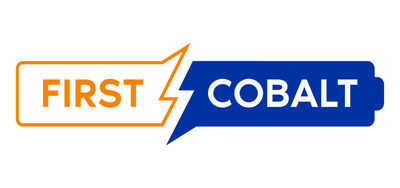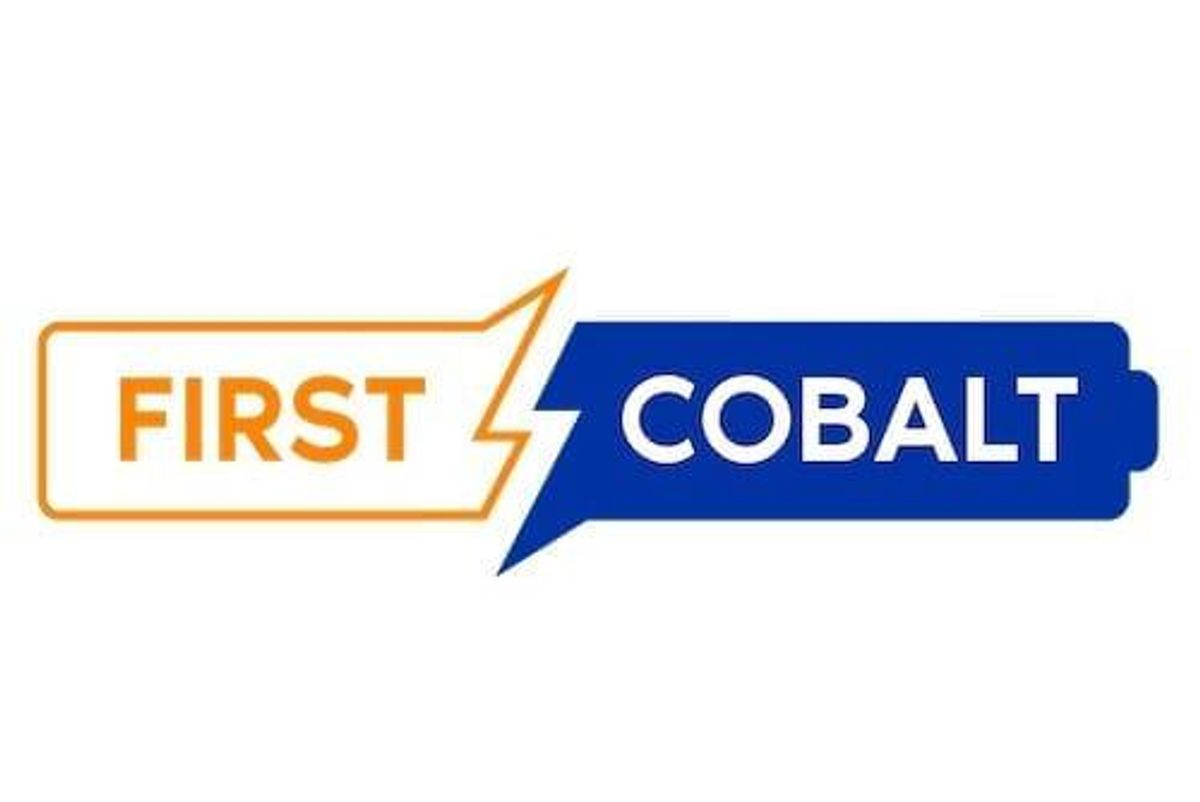First Cobalt Corp. (TSXV: FCC) (OTCQX: FTSSF ) (the "Company") announced that it has successfully extracted nickel, cobalt, copper, manganese, lithium and graphite from a "black mass" product recovered from recycled batteries. Black mass represents the main chemical composition of the battery and is obtained after removal of the mechanical housing of the battery. Work is now underway to leverage the existing operating permits, flow sheet and equipment at First Cobalt's Canadian hydrometallurgical refinery to become the first facility to recycle battery materials on a large scale for reintroduction into the electric vehicle battery supply chain.
Highlights
- To date there is no operating facility in North America that can recover each of nickel, cobalt, copper, lithium, graphite and manganese from black mass on a large scale, continuous production basis.
- The Company's refinery in Canada has existing refining capabilities (size and scale) to produce separate products containing nickel, cobalt, copper and manganese. With flow sheet modifications, recovery of lithium and graphite can also be achieved.
- Metallurgical test work was conducted by SGS Labs on black mass material provided by upstream battery recyclers in the U.S. and Europe . Bench scale testing has demonstrated expected extractions of lithium, nickel, cobalt, copper, manganese and graphite.
- A global engineering firm has been retained to study the leaching of black mass within the existing refinery to produce nickel, cobalt, copper and manganese products using the existing flowsheet and to produce lithium and graphite products with recommended modifications.
- Completion of the engineering study is expected in Q4. Upon successful completion of the study, the Company intends to process black mass at the refinery facility on a pilot basis.
- First Cobalt's near-term strategy is to leverage its existing processing facilities to process black mass and recover payable metals. Longer term, the Company intends to produce "battery grade" materials for reintroduction into the electric vehicle supply chain.
- Discussions have been initiated with provincial regulatory authorities to permit the processing of black mass at its facility.
"Demonstrating our ability to recycle lithium-ion batteries is an important step in our journey to be the most sustainable producer of battery materials," said President & CEO Trent Mell . "There are many producers of black mass in the western world but few environmentally friendly options to then refine the product into battery grade material given the capital expenditure required and the permitting timeline associated with building a hydrometallurgical facility such as ours. We intend to capitalize on this first-mover advantage and leverage our position as an ultra-low carbon operation."
First Cobalt continues to study the treatment and recovery of battery metals known as "black mass" from recycled EV and consumer electronics batteries. When lithium-ion batteries reach their end-of-life, they are dismantled and the part containing the electrodes are crushed or shredded to produce a powdery fraction referred to as black mass. This mechanical process then requires a refining solution to separate and recover each of the metals. In a world increasingly focused on ESG, the superior approach is to use a hydrometallurgical refining process rather than pyrometallurgy, due in part to the lower carbon footprint and potential to recover a significant portion of the battery chemical components. First Cobalt is well positioned to serve this growing market through its Canadian facility
The First Cobalt Refinery is a hydrometallurgical refinery located north of Toronto , in the community of Temiskaming Shores. The facility operated from 1996 to 2015, producing cobalt, nickel, copper and silver products. The Company is modifying the flow sheet under a Phase 1 expansion to refine third party cobalt hydroxide intermediate product into a high purity, battery grade cobalt sulfate suitable for the electric vehicle market. Today, approximately 80% of cobalt sulfate is made in China and there is no production in North America . Under a Phase 2 expansion, the refinery is expected to process black mass feed from recycled batteries. Longer term, the Company's vision is to establish a Battery Park that would include large scale production of nickel sulfate and the co-location of a battery precursor manufacturer.
In December 2020 , the Government of Canada and the Government of Ontario announced a joint $10 million investment in the First Cobalt Refinery to help accelerate commissioning and expansion.
Idaho Land Acquisition Update
On May 11, 2021 , the Company announced the acquisition of the West Fork Property in Idaho from DG Resource Management. The Company wishes to clarify that the total compensation paid was $50,000 in cash and 225,000 (not 250,000 as previously announced) common shares of First Cobalt.
About First Cobalt
First Cobalt's mission is to be the most sustainable producer of battery materials. In 2022, the Company plans to commission North America's only cobalt sulfate refinery, a critical asset in the development and manufacturing of batteries for electric vehicles. First Cobalt also owns the Iron Creek cobalt-copper project in Idaho, USA as well as several significant cobalt and silver properties in the Canadian Cobalt Camp.
Neither TSX Venture Exchange nor its Regulation Services Provider (as that term is defined in policies of the TSX Venture Exchange) accepts responsibility for the adequacy or accuracy of this release.
Cautionary Note Regarding Forward-Looking Statements
This news release may contain forward-looking statements and forward-looking information (together, "forward-looking statements") within the meaning of applicable securities laws and the United States Private Securities Litigation Reform Act of 1995. All statements, other than statements of historical facts, are forward-looking statements. Generally, forward-looking statements can be identified by the use of terminology such as "plans", "expects', "estimates", "intends", "anticipates", "believes" or variations of such words, or statements that certain actions, events or results "may", "could", "would", "might", "occur" or "be achieved". Forward-looking statements involve risks, uncertainties and other factors that could cause actual results, performance and opportunities to differ materially from those implied by such forward-looking statements. Factors that could cause actual results to differ materially from these forward-looking statements are set forth in the management discussion and analysis and other disclosures of risk factors for First Cobalt, filed on SEDAR at www.sedar.com . Although First Cobalt believes that the information and assumptions used in preparing the forward-looking statements are reasonable, undue reliance should not be placed on these statements, which only apply as of the date of this news release, and no assurance can be given that such events will occur in the disclosed times frames or at all. Except where required by applicable law, First Cobalt disclaims any intention or obligation to update or revise any forward-looking statement, whether as a result of new information, future events or otherwise.
SOURCE First Cobalt Corp.

![]() View original content to download multimedia: https://www.newswire.ca/en/releases/archive/July2021/22/c9487.html
View original content to download multimedia: https://www.newswire.ca/en/releases/archive/July2021/22/c9487.html

